Home
Practice Your ENGLISH
Express Your Opinions
The Summer Vacation
Remember your foreign adventure twelve years ago?
At a seaside amusement park, you met Barney, a local who said that he had been studying English his entire life.
And yet when you asked him what his favorite animal was, he froze. He stammered. He looked up at some trees.
Now, why was that?
Indeed, hardly anyone there could speak any English at all.
The Train Ride
The following day you went on a train ride.
In your compartment sat three travel bloggers from places you couldn’t pronounce.
And they talked to you about travel … food … hobbies … culture … history … work … education … discos … all in proper English, even though it wasn’t their native language.
“So how did you master English?” you asked them.
“Oh, from watching cartoons on TV when I was young,” replied Ronald, the one with the best English.
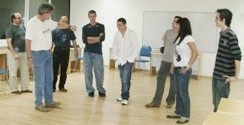

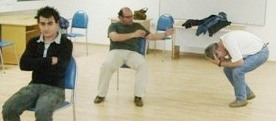
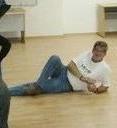
Program
The lessons here consist of a mixture of theme-based activities:
• discussion topics – travel, food, economics, culture, work, school, politics, hobbies.
• vocabulary – irregular verbs, phrasal verbs, idioms.
• reading – Stories. News. Anecdotes.
• listening – Video clips. Documentaries.
• and GRAMMAR:
1. I have been on TV. True or false?
2. Do people have to go to university in order to “succeed”?
3. What can rich people do that average people can’t?
4. If my friend won $1 million in the lottery, he or she would . . . . . . . . . .
5. Globalization benefits the whole world. Do you agree?
6. Restaurant meals are more delicious than my grandmother’s cooking. Yes or no?
7. Will today’s family structure remain the same (in the future)?
8. Mr. Couchpotato is out of shape. Why? How can he get in shape?
9. My friend thinks the government should…………..
10. Describe the most beautiful/handsome person from your school.
And much more . . .
Users’ Guide
You can browse around this website and practice communicating with an online buddy using headphones and webcams. Or just study the material yourself and write in comments.
Keep in mind that when you practice speaking, instead of replying with only one or a few words, try to respond as fully as possible. State reasons why something is so, or why you feel a certain way. Give examples as well.
So PLAY AROUND and HAVE FUN (while brushing up your English!)
Diagnostic Questionnaire
A. What is your level of English? Starter or beginner, elementary, pre-intermediate, intermediate, upper-intermediate, advanced, or somewhere in between?
B. Are you in elementary (primary) school, high (secondary) school, vocational school, technical college, university, graduate school, looking for work, and, or working?
C. Why are you learning English? What are your English-language goals? Are you learning English for school, university, an exam, your career (business or specialized English), to emigrate, travel, culture, fun, as a hobby, or general self-improvement?
D. What do you like to read, watch, and talk about? What are your hobbies? What are you interested in? For example, travel, food, movies, sports, shopping, fashion, stories, TV, music, celebrities, the internet, business, economics, history, nature, philosophy, politics, psychology, religion, sociology, all of the above?
F. What sort of teaching and learning style, method, techniques, material do you want or like? What kind of teaching and learning style, method, techniques and material do you dislike or not want?
G. Describe or give examples of fantastic, perfect English lessons, average lessons, and boring or useless lessons.
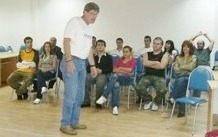
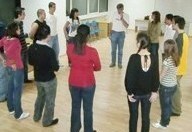
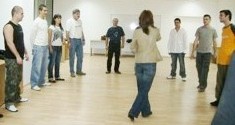
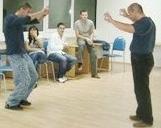

Hello!
Finding the ideal home to enjoy the golden years is a significant decision, especially when planning to age in place comfortably. I’d love to put together an article for your site highlighting essential features aging home buyers should consider to ensure their home supports their evolving needs.
The article will cover key aspects like one-story layouts, no-step entrances, accessible bathrooms and kitchens, slip-resistant flooring, and wider hallways. I’ll also address practical details, such as maintaining a smaller yard and living close to essential services, to help readers envision a home that fosters both independence and safety.
If this sounds like a valuable resource for your audience, please let me know—I’d be happy to prepare the full piece for your review!
Thank you very much!
Suzanne Tanner | https://ablesafety.org/
P.S. I’d understand if you don’t want to receive further emails from me, and just reply to let me know. However, if my proposed content interests you, I’d be happy to send it your way. Let me know of any writing preferences or inclusions that you’d like to see.
and was erased and on cleaned
Good day!
Have you ever stopped to think about how much of a difference we can make in the lives of vulnerable children when we come together as a community? From mentoring programs to policy advocacy and grassroots initiatives, there are countless ways individuals, nonprofits, schools, and organizations can step up to improve their lives.
I’d love to write an article for your website highlighting strategies to advocate for vulnerable children and inspire your audience to take meaningful action. Together, we can create opportunities for a brighter tomorrow.
Would you be interested in featuring this piece? Let’s make a difference together!
Thank you sincerely,
Leslie Campos
https://wellparents.com/
Well parents raise well kids.
~If, by any chance, you’d prefer an article on a different topic, please send over your suggestions. However, if you’d prefer not to receive emails from me, please let me know!